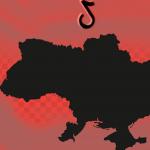Pro-Russia TicTok Influencers Promote Invasion of Ukraine

Over 180 Russian influencers on TikTok are involved in a seemingly concerted propaganda campaign using the caption “Russian Lives Matter” and participating in a combination of three trends that promote online support for Russia's war in Ukraine.
A Media Matters review of videos posted between March 4 and March 8 that use the caption “Russian Lives Matter #RLM” identified 197 videos from 186 accounts, 12 of which are verified on TikTok. Our review found that a number of the videos had identical captions and in-video text, suggesting that they were the result of some degree of organization. The video content took a favorable, pro-Russian stance regarding the war effort. If these posts were coordinated, it would suggest that they are trying to influence conversations about the war among English and Russian-speaking audiences on TikTok. Similar influencer coordination was uncovered in a recent Vice report.
The three trends include influencers kneeling with a sign which says “Russian Lives Matter,” a dance centered on forming the letter “Z” with hands, and a meme claiming “real women” support the war in Ukraine that also features users making the “Z” hand symbol. This aligns with the Russian government’s use of the letter “Z” as a symbol to rally citizens around the war in Ukraine.
Of the 197 videos reviewed by Media Matters, 180 — or 91% — were uploaded between March 5 and 6. Notably, many of the larger influencers involved in this campaign do not appear to be particularly political in their daily content. For instance, one user is a beauty influencer with 3 million followers, another account with 1.8 million followers makes comedy sketches, while another creates prank videos for its 3.2 million followers.
It is already improbable that 186 Russian influencers would organically participate in one of these trends, with nearly identical videos, using identical on-screen text, English-language posters, identical captions, and an identical hashtag all within a matter of two days — but the users’ typos, in particular, suggest some level of organization behind these trends.
Several users’ captions included Russian-language instructions ahead of the “Russian Lives Matter #RLM” caption. Sloppy copy-pastes also seem to have resulted in some users’ captions featuring words like “description” or “video description” (as in the description for the video, i.e. caption), with one user’s Russian caption translating to: “You can publish, description: Russian Lives Matter #RLM”
The videos with this caption largely centered on three specific trends.
Trend 1: Russian Lives Matter
In this trend, which is set to a popular TikTok audio featuring the Russian folk song “Katyusha,” influencers begin by kneeling on one knee. They hold a sign that reads: “Russophobia, Donbas, hate speech, cancelling, Luhansk, sanctions, info wars, nationalism.”
As the beat drops, the influencer stands up and reveals the back of their sign, which reads “Russian Lives Matter.” This imagery is combined with a colorful, oversaturated video effect.
Media Matters identified 20 videos following this trend, 8 of which were posted by verified accounts. In each video, the influencer’s posters featured identical English-language phrases on the front, “Russian Lives Matter” on the back, and “Russian Lives Matter #RLM” as the video caption. This trend appropriates language of the Black Lives Matter racial justice movement in an attempt to enforce a narrative of Russian victimization or, as the sign claims, “Russophobia.”
In recent weeks, Russian President Vladimir Putin has baselessly claimed that “genocide” was being committed against Russian-speaking people in the Donbas region of Ukraine, using the talking point to justify his invasion. Putin’s narrative of Russia as the subject of aggression, rather than the aggressor, is echoed in this trend.
Trend 2: The Z Dance
The second trend uses a popular existing TikTok dance to audio featuring the song “Swang” by Rae Sremmurd. The choreography is changed slightly to incorporate a “Z” hand sign on two occasions. By combining this previously popular trend with a symbol that has become increasingly linked to pro-war sentiments, these dance videos create the appearance that influential young people in Russia support the war, thereby making the war effort seem cool.
Of the three TikTok trends, this is the most popular, with 108 such videos identified by Media Matters.
Trend 3: “Real Women”
The third trend is a meme, using a popular TikTok audio featuring the song “Masquerade,” that was exclusively promoted by women in the videos we reviewed, seemingly to argue that Russian women should take a strong pro-war stance.
Though it’s heavily reliant on Russian slang that doesn’t translate precisely into English, the meme can be broken into two parts. The first part roughly translates to “How basic girls pose with their fingers,” as the influencers strike traditional selfie poses. The second part of the meme indicates “How real women pose their fingers,” and features the users making a “Z” with their hands.
Media Matters identified 69 videos promoting this trend.
Regardless of which trend these 186 influencers utilized -- or how they were coordinated -- the end result is the same: TikTok's platform is being used to depict a glamorized version of the invasion of Ukraine and promote Russian support for it. By promoting narratives of both Russian victimization and support for the war through these influencers' posts, these trends serve a more insidious purpose of amplifying content that valorizes the Russian war effort and manufactures consent for its invasion of Ukraine.





